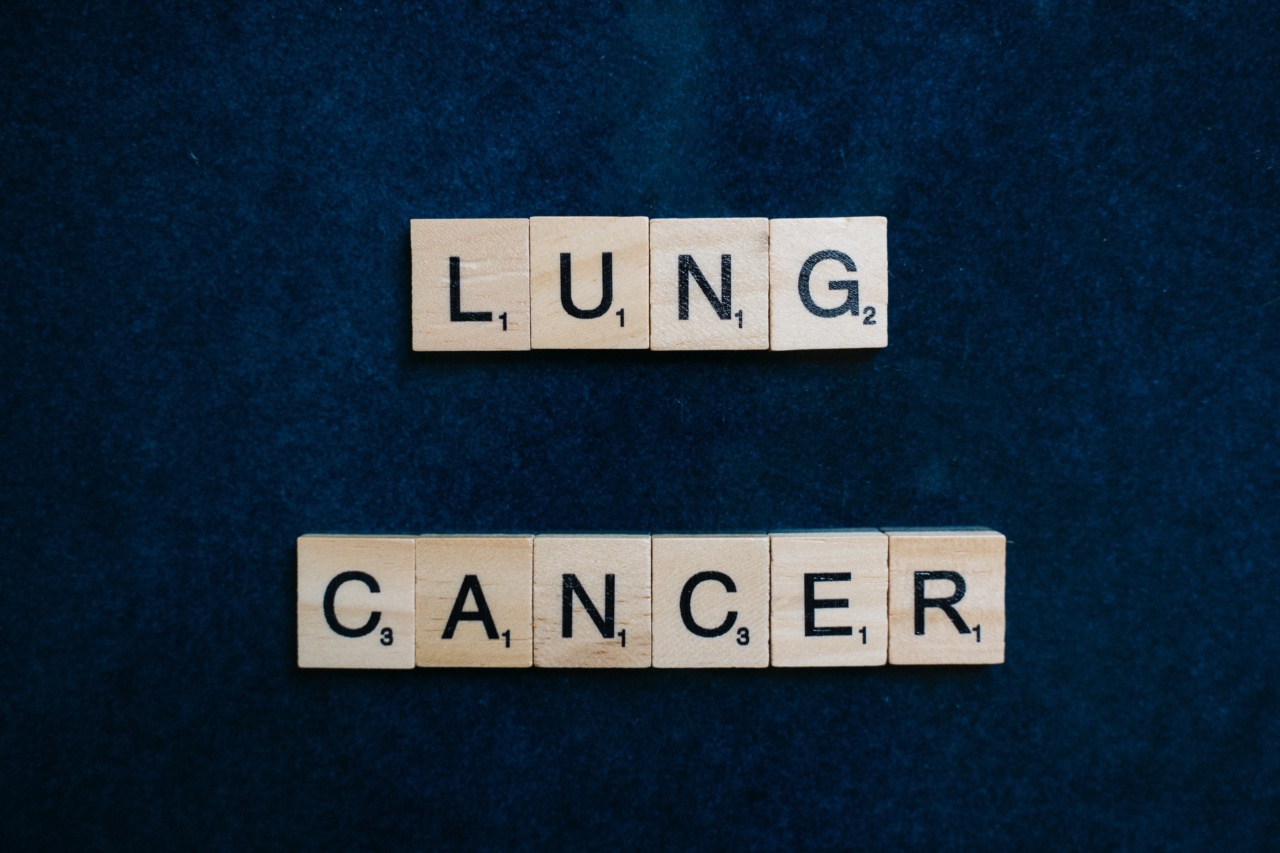Smoking is a well-established risk factor for developing lung cancer. The majority of lung cancer cases are directly attributed to cigarette smoking.
However, it is interesting to note that there are some smokers who manage to avoid the development of this deadly disease. This article delves into the various insights behind why some smokers are able to escape lung cancer, exploring the factors and strategies that contribute to their reduced risk.
1. Genetic Factors
Genetics play a significant role in determining an individual’s susceptibility to lung cancer. Certain genetic variations can impact how an individual metabolizes carcinogens found in tobacco smoke.
These genetic differences can result in either a higher or lower risk of developing lung cancer. Some smokers may carry genetic variants that provide them with a degree of protection against lung cancer.
2. Reduced Exposure
While smoking itself poses a great risk, the intensity and duration of exposure to tobacco smoke can also influence the likelihood of developing lung cancer.
Smokers who consume fewer cigarettes a day and have a shorter smoking history may have a lower risk compared to heavy and long-term smokers. Additionally, smokers who avoid passive smoking and limit their exposure to secondhand smoke may also reduce their risk of developing lung cancer.
3. Early Quitting
The sooner a smoker quits, the greater the chances of avoiding lung cancer. Research has shown that lung cancer risk decreases with the length of time since quitting smoking.
Smokers who quit at an earlier age further enhance their chances of avoiding lung cancer. The body’s healing mechanisms start repairing the damage caused by smoking as soon as one quits, gradually reducing their risk over time.
4. Dietary Choices
It has been observed that certain dietary choices can influence the risk of lung cancer, even among smokers.
Diets rich in fruits and vegetables, which are high in antioxidants and other beneficial compounds, have been associated with a reduced risk of lung cancer. Smokers who incorporate such foods into their diet may help mitigate the damage caused by smoking and lower their risk of developing lung cancer.
5. Physical Fitness
A physically active lifestyle can have a positive impact on lung health and potentially reduce the risk of developing lung cancer.
Regular exercise helps improve lung function and strengthens the immune system, which plays a vital role in combating cancer cells. Smokers who engage in regular physical activity may experience a reduced risk of lung cancer compared to sedentary individuals.
6. Avoidance of Other Carcinogens
Smoking is not the only source of carcinogens that can lead to lung cancer. Occupational exposure, pollution, and environmental factors can also contribute to the development of the disease.
Some smokers may actively avoid other sources of carcinogens or have limited exposure due to their occupation or geographical location. This reduction in overall carcinogen exposure can potentially decrease their risk of lung cancer.
7. Personalized Healthcare
The advancement of personalized healthcare has allowed for more targeted approaches in cancer prevention.
Some smokers may have the advantage of personalized healthcare, where early screening techniques and specific interventions can be utilized to detect and address any precancerous changes or abnormalities in their lungs. This proactive approach can help minimize the risk of lung cancer development.
8. Awareness and Education
Knowledge is power, and smokers who are well-informed about the risks associated with smoking are more likely to take preventive measures.
Awareness campaigns, educational programs, and access to reliable information can empower smokers to make healthier choices and adopt strategies aimed at reducing their risk of lung cancer.
9. Support and Quitting Resources
Quitting smoking can be a challenging task, but the availability of support systems and resources can greatly improve the likelihood of success.
Smokers who have access to counseling, cessation programs, and nicotine replacement therapies are better equipped to quit smoking and subsequently lower their risk of lung cancer.
10. Luck and Chance
Lastly, it is important to acknowledge that luck and chance can also be contributing factors. Some individuals may possess a combination of favorable circumstances that unintentionally reduce their risk of developing lung cancer.
However, relying solely on luck is not a recommended approach, as it is always better to adopt proven strategies to minimize the risk.
Conclusion
While smoking remains an undeniable risk factor for lung cancer, there are various insights into why certain smokers manage to avoid this disease.
Genetic factors, reduced exposure, early quitting, dietary choices, physical fitness, avoidance of other carcinogens, personalized healthcare, awareness and education, support systems, and even luck can all contribute to an individual’s reduced risk. It is imperative for smokers to understand these factors and implement strategies to protect their lung health. However, it is crucial to remember that the best way to reduce the risk of lung cancer is to never start smoking in the first place.




























